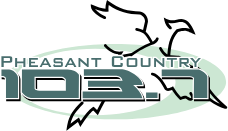MITCHELL, S.D. (By Lura Roti for South Dakota Soil Health Coalition) – The 2020 South Dakota Soil Health Coalition (SDSHC) Soil Health School will be held in Mitchell, S.D., on the Stehly Farm and at the Highland Conference Center (2000 Highland Way). Registration is now open for the School which is scheduled for Aug. 31-Sept. 2.
“If you are seriously interested in soil health and all that goes into it, this is a very good place to be,” explains Dennis Hoyle, founding SDSHC board member and Edmunds County farmer.
Held in a new location every two years, Hoyle explains the Soil Health School is designed to provide applicable, research-based, expert and landowner-tested resources and information to producers through on-farm demonstrations and classroom sessions.
“This is not soil health 101. We pack a lot into the school,” says Hoyle, a third-generation farmer who has been implementing soil health practices on his farm since 1982. “We figure if you are going to invest the time, then we will provide as much information as possible.”
Working to provide producers with soil health information, resources and research, the Soil Health School is one of many events SDSHC hosts each year. “We discover what will be good for soil health and then pass that information on to those who are interested,” Hoyle says.
40 years of soil health practices on display
Four decades ago, economics motivated brothers Craig and Gene Stehly to begin implementing soil health-focused farming practices on their Mitchell farm.
“Our first motivation is always profit,” Gene says. “We are running a business. If you look at the result of the journey, we started 40 years ago, we have soil that is much healthier in every way. We can raise more bushels with less inputs.”
Wide-row corn & nutrient management test plots
Since their first organic matter test came back at 2 percent in the 1980s, the brothers’ soil health efforts have resulted in rebuilding organic matter in most fields to between 4 and 5 percent.
“It comes down to profitability. If you improve organic matter, you’ll get higher yields and more water holding capacity,” explains Craig. “Also, it’s about the land as a legacy. If you want your land to remain productive, you need to build organic matter.”
During the 2020 Soil Health School, attendees will have an opportunity to learn firsthand what practices have worked on the Stehly Farm as well as Edinger’s. Several test plots provide Soil Health School participants with firsthand, field-based opportunities to learn from soil health experts about nutrient management, grazing cover crops, manure application and cover crop practices. The test plots were established by SDSHC and South Dakota State University (SDSU) on the Stehly Farm and, Chet and Charlie Edinger’s farm.
Wide-row corn: An 8-acre field has been planted to 44-inch corn rows and interseeded with a diverse cover crop mix when the corn was V4 stage. The cover crop mix is designed to help cycle the corn stalk residue after 2020 corn harvest. In 2021, corn will be planted into the cover crop residue.
Grazing cover crops: Several cover crop plots were planted into a 3-acre parcel of land on the Edinger Farm. Developed for the purpose of livestock grazing, the majority of the plot was planted to a diverse cover crop mix of cool and warm season grasses and broadleaves.
A real-time demonstration, this plot is designed to give participants the opportunity to apply classroom knowledge and monitor their results. Based on management goals, such as animal weight gain or wildlife habitat, attendees will determine the necessary paddock size, fence the area off and monitor the results throughout the Soil Health School.
“I see this as a highlight,” says Austin Carlson, SDSHC Soil Health Technician. “Sometimes producers are intimidated by cover crops. This real-time demonstration is a good way for them to actually see how management works and give them confidence. Students learn about best practices in the class, see cover crops and see what the livestock impact is on the ground based on their management practices.”
Biomass benefits: Participants will see firsthand the amount of biomass produced by different cover crop mixes and scenarios as they tour four different cover crop plots. These plots provide insight into what mixes may work best depending on a producer’s land and management goals – biomass for livestock grazing or soil cover to minimize weed pressure.
“We really stress planning before purchasing cover crops, verifying herbicide carry-over, considering crop rotations and residue management and then tailoring the cover crop mix to meet the goals,” explains Carlson. “Cover crops are an investment and hold a lot of potential for nutrient cycling, managing the water cycle, offering forage for livestock, and improving soil health, but it is important to evaluate the system and select the proper mix based on the producer’s goals.”
Herbicide impact: Several individual cover crop plots, featuring diverse plant species, were established by SDSU to provide producers with insight into how various herbicides impact specific cover crop species.
Experts discuss nutrient management and much more
Livestock manure is one of the quickest ways to build soil organic matter, explains John Lentz, Ag Nutrient Management Team Leader for Natural Resources Conservation Service (NRCS).
“Different from commercial fertilizer, livestock manure builds organic matter because it also contains carbon,” Lentz says.
The team Lentz leads works with livestock producers across South Dakota, helping them develop nutrient containment and management plans to make the most of their valuable, soil-building resource. “A plan is necessary to protect water resources and ensure nutrients are applied appropriately, just enough for the crop to be completely healthy and provide the soil with what it needs to build organic matter but not too much so that we have an issue with nutrients leaving the field, which could lead to water quality issues.”
During the 2020 Soil Health School, Lentz will share how producers can make the most of their livestock manure. He is one of several experts invited to lead interactive seminars during the classroom portion of the school. In addition to nutrient management, other topics to be covered include microbiology, machinery adaptations, soils, carbon, beneficial insects, cover crops and more.
Class size is limited, register today.
For a complete agenda and to register for the 2020 SDSHC Soil Health School, visit
www.sdsoilhealthcoalition.org and click on the Events tab. Or contact Cindy Zenk, SDSHC Coordinator at 605-280-4190 or [email protected].







